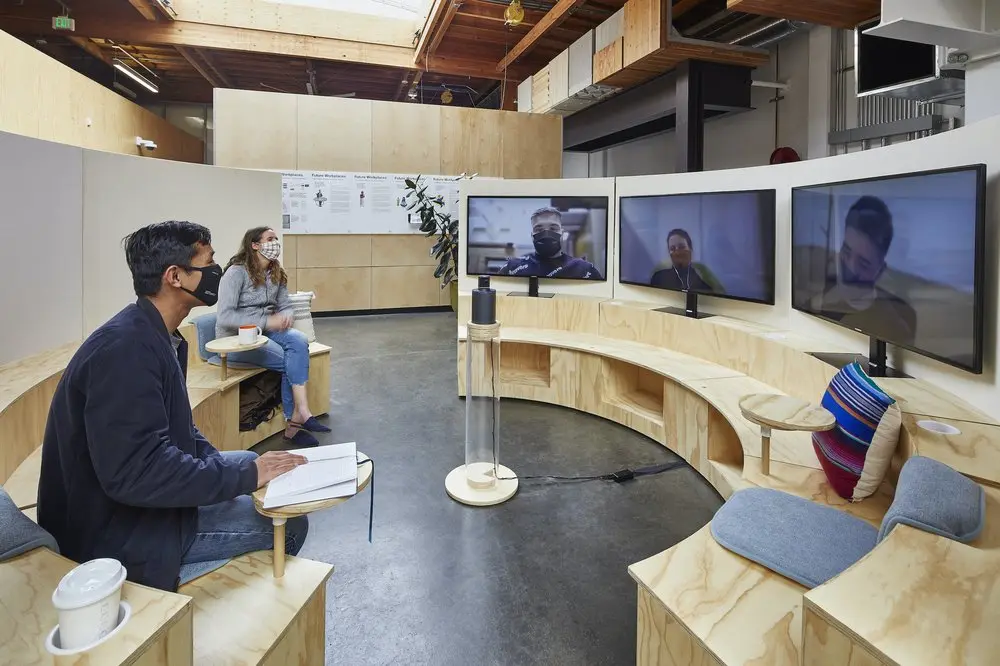You may have heard people saying, ” I have a remote job” or “I work remotely” but you have no idea what is this remote working. You just nod in agreement as these folks praise the adaptability of their lifestyles and the advantages they’ve experienced in their careers as a result of being able to work remotely, but deep down you have a few concerns. What exactly is remote work, for instance? And if working remotely has such fantastic advantages, why do big businesses hesitate to provide their staff with virtual jobs?
Be at ease; We’ve got your questions covered. Let’s dive into the article to know all about remote jobs!
What Are Remote Jobs?
Remote Jobs are those jobs that enable professionals to conduct their business away from the confines of an office setting. These jobs can be carried out from a place that is not run by or connected to the concerned company you are working with. The venues might be anywhere, such as a co-working place, a worker’s home, or another site not affiliated with the business.
Virtually every sector or career where the primary means of performance is a computer may offer remote jobs. When employing social media managers or software engineers, for instance, remote jobs are very frequent. It can either be a full-time or a part-time position as there are several types of remote jobs available now.
How Does Remote Job Work?
People can work remotely in a number of different ways. The beauty of remote jobs is that individuals may choose how to come up with a system that fits their life best. It is founded on the idea that work doesn’t necessarily need to be done in a certain location to be properly carried out.
Consider it this way; Remote jobs offer employees to complete their tasks and achieve their objectives wherever they wish, as opposed to having to commute to an office each day to work from a certain workstation. People have the freedom to plan their days in a way that allows their work and personal life to coexist harmoniously and to the maximum extent possible.
Some people use co-working areas as their primary locations for getting work done. Co-working spaces serve as centers of technology, community, and productivity, providing excellent network connectivity and chances to engage with people from a variety of professions. People with full-time employment, independent contractors, and even business owners looking to rent out office space for themselves or a small workforce can all make use of them.
Subtleties or degrees of remote jobs?

You might not be aware of this, but when someone claims to be working remotely, they could be doing it in any of five distinct ways. Each is discussed below.
Remote-Friendly Work:
When remote working circumstances are optional, the workplace is considered remote work-friendly. This suggests that a corporation is adaptable and receptive to how its employees arrange themselves and plan their job obligations. They enable Work from home a few days per week and provide the option to work remotely for an extended amount of time each year, from any destination in the world of their choice.
They also allow to work outside of normal business hours (09:00 – 17:00). This might be done in-office, from home, or both.
This form of remote working is gradually becoming one of the most popular approaches for businesses to establish a remote working strategy.
Momentarily Remote Job:
A momentarily remote job is one that can be completed remotely but only for a limited time. This form of remote employment is frequent in seasonal contracts or freelance-type jobs.
Crossbred or Hybrid Remote Job:
Every individual at a firm who regularly works both on-site and remotely is said to have a hybrid remote job. In comparison to a remote-friendly approach, this one gives employees less freedom to choose when and how they can work remotely.
Remote-First Jobs:
In a remote-first position, there is no actual physical office where people could work, even if they chose to. If an organization has a physical office but is offering remote-first employment, it is expected that the employees would only sometimes, if at all, work from the office. This kind of remote employment is typically found in young, start-up businesses that value flexibility and regard remote work as the way of the future.
Entirely Remote Jobs:
A totally remote employment, often known as a remote-only job, is exactly what it sounds like: a role that is solely remote. This means that no individual’s physical presence is ever required throughout working hours, and all job obligations are accomplished remotely.
Benefits Of Remote Employment For Employees:

Employers and workers can both profit from working remotely. Let’s look at how choosing remote work benefits employees:
Freedom of choice and Flexible Lifestyle:
The ability to live a more flexible lifestyle is the most obvious reason why people want to work remotely. As remote employees are not required to be in the office at a set time, they can concentrate on their outside interests as well. Remote employees are not consistently confined to a certain timetable. Depending on their daily priorities, they may adjust their schedule.
Improved well-being and health
Compared to their coworkers in offices, remote employees are noticeably less stressed and have greater morale. 55% of participants in a study by the Royal Society for Public Health in the UK reported feeling more stressed as a result of their commute. Employers may foster less stressed workers by doing away with the commute and allowing remote workers to work in a setting where they feel at ease.
Cost-Saving:
It can be pricey to commute. Travel expenses, parking fees, meals, coffee breaks, birthday cakes, gifts for coworkers, work attire, and on and on it goes. These costs, which can build up, are reduced while working remotely. This increases the amount of disposable cash that may be used for other purposes, which is always beneficial.
Rekindled enthusiasm for Job
In general, remote workers produce their best work away from the office. They may choose to block off ambient distractions as they see fit and are more motivated by their surroundings. In fact, having the option to work alone virtually gives remote workers a fresh outlook on their job. They see it as encouragement or a reward for their good work and are inspired to keep going above and beyond their goals in order to keep leading the life they’ve grown to enjoy.
Benefits Of Offering Remote Jobs For Employers:

Increased Worker’s Productivity:
The enhanced productivity that comes with flexibility is one of the most popular justifications for working remotely. Compared to office-based employees, remote workers are more likely to put up extra effort and go above and beyond to complete their assignments. The State and Work Productivity Report indicates that 65% of full-time employees think working remotely will boost productivity, and their managers concur. In a poll, two-thirds of managers said that their remote workers’ overall productivity had increased.
Also read:
6 ways to spend your time productively when working from home
Savings on expenses:
Remote workers are also beneficial to a company’s financial line. Companies can reduce overhead by saving money on expenditures such as rent and office furnishings when a team is completely distributed.
More Engaged Personnel:
Employers provide remote work alternatives to keep their staff members happy and motivated. Employee engagement is not simply a fad when it comes to remote work; according to Softchoice research, over 75% of respondents claimed they would leave their current position for one that permitted remote work. Employers who are concerned about retaining talent will pay greater attention if they hear that. According to a TINYpulse poll, remote workers said they felt more respected in their roles and were happier overall than non-remote workers.
Why Large Firms Don’t Embrace Remote Working?

In addition to the enormous advantages of remote work, there are a lot of misconceptions about it and many businesses are hesitant to provide remote employment. Larger businesses and multinationals still have certain reservations about implementing remote practices. How come this is the case? Let’s See!
Fear Of Increased Flexibility:
Businesses are concerned about remote workers’ growing flexibility in terms of working hours and location. This is consistent with the worries about people not working. There is no such thing as remote work. We’ve heard it all before! The common perception of remote workers is that they spend their days lounging about in bed wearing pajamas, occasionally working, but not as effective as those who travel to the office every day. We are aware that this is undoubtedly untrue.
Costly Real Estate
Major companies have spent tiny fortunes on the acquisition, renting, and renovation of office property. The C-suite executives will be forced to pay the astronomical expenditures of their office buildings if employees do not return in droves. It won’t be that simple to sell or rent their office portfolio because every other company is going remote. The goal is to get employees back to their desks so that the bean counters can feel better about not squandering money.
Lack of Control and Hierarchal Structure:
While flexibility and upholding company culture may appear to be the main reasons why larger businesses are reluctant to adopt remote working, in reality, the lack of control and hierarchical structure that comes with having your employees dispersed across a large geographic area is to blame. Importantly, it is because of complicated hierarchies with separate reporting lines and team interactions that larger firms grow to be so enormous. Therefore, if any of those roles are eliminated, the authority held by those at the top will lessen.
Also, many bosses take pride in their ability to rule over you. When you have dispersed staff, they lose control over you and are unable to micromanage as they formerly did.
Troubled Communicating:
It is accurate to say that remote workers are not always present at in-person meetings. They don’t participate in water cooler banter or happy hour get-togethers, but they make up for it in their drive to stay involved with the team and do well at work.
Data Security:
The issue of information security will arise. Data security will always be an issue when users use diverse places to access systems. However, there are numerous and efficient software ways to handle this issue.
Difficult to keep track:
It’s not difficult to have everyone under one roof. It’s more difficult when the labor is scattered extensively. A hybrid strategy that requires employees to visit the workplace two or three times each week raises the bar for huge hurdles.
Everyone will need to be monitored by managers. To make things work out properly, they’ll need to put in a lot of time, effort, planning, and empathy. Because they are out of sight and out of mind, there is a considerable danger that remote employees may feel excluded and treated like second-class citizens if the strategy is not implemented properly.
Company Culture and Collaboration will suffer:
If companies want to attract and keep the finest employees, they must concentrate on creating a strong culture. Large companies and Top executives think that this type of cultural formation necessitates coworkers working together in the same area. If employees are not working together, company culture and collaboration will suffer.
Work As a Remote Real Estate Negotiator At IQI GLOBAL:

Large firms typically do not embrace remote working because they are often developed and operated in a more traditional manner. But all businesses, regardless of size, must adapt and change. Remote working is the future and job candidates are giving it considerably more consideration when choosing where to apply.
IQI GLOBAL, A large firm in Malaysia clearly understood the assignment and is not following the goose lane of big firms fearful of offering remote employment. At IQI GLOBAL, you can work as a remote real estate negotiator and take advantage of:
- Better prospects for work-life balance
- Less stress from work-life balance activities like commuting or taking time off for illnesses and emergencies
- Feelings of acceptance and freedom to do your job tasks
- Higher levels of motivation, contentment, and general well-being
IQI GLOBAL values its employees and put in every effort to retain its top talent and keep them happy and satisfied even if takes offering them remote employment opportunities.
[hubspot type=form portal=5699703 id=c063034a-f66d-41ab-881b-6e6a3f275c33]




